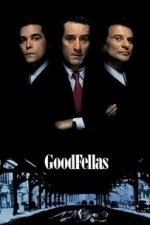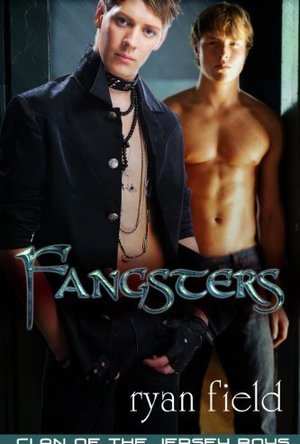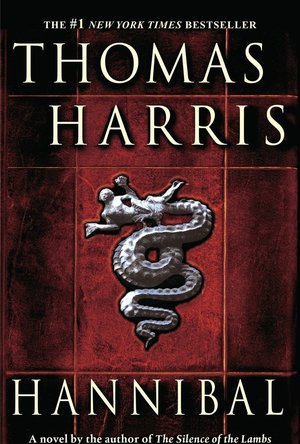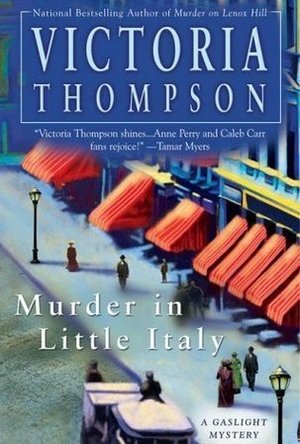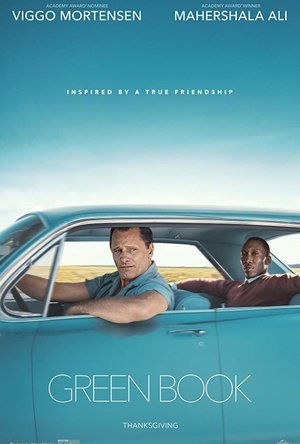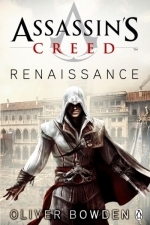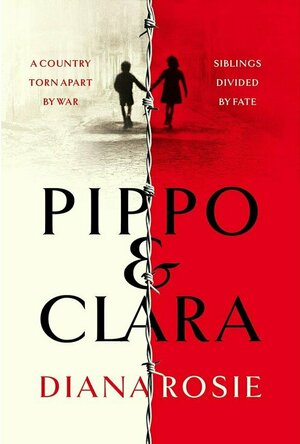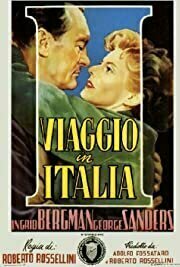Search
Search results
Jake Lacy recommended GoodFellas (1990) in Movies (curated)
Leanne Crabtree (480 KP) rated Clan of the Jersey Boys (Fangsters #1) in Books
Sep 6, 2019
DNF
I hate DNFs. I always feel bad for not finishing them but sometimes I just cant get into a story. I stopped at 38%.
Right. Well, I expected this to be betterthat sounds bad I knowbut I was expecting them to be these tough vampires who kicked arse while running an illegal empire. In a way it was, but it didnt seem bad-arse enough for me. Sure there were a few scenes with retribution/warnings handed out to people but I didnt feel it.
Another thing that got me was all the mention of family and its many members. Yeah I know families are important in Italian/Sicilian cultures but more people kept getting mentioned and I found myself getting confused. What with Anton and someone else being turned by one person and his dad and uncle turned by someone else and this guy turned by the brother of that guy making them cousins I got lost. It was a little too much for me to keep up with.
The relationship between Anton and Leo happened a little too fast for me to believe. Not the sexhes an attractive guy after allbut the love yous and how strong their feelings were after the one night they spent together. Or maybe I just missed something?
Its not a bad story, it was just a little different to what I normally read; the mobster/gangster bit anyway. If you like vampires, mobsters and m/m stories then you will probably like this.
I hate DNFs. I always feel bad for not finishing them but sometimes I just cant get into a story. I stopped at 38%.
Right. Well, I expected this to be betterthat sounds bad I knowbut I was expecting them to be these tough vampires who kicked arse while running an illegal empire. In a way it was, but it didnt seem bad-arse enough for me. Sure there were a few scenes with retribution/warnings handed out to people but I didnt feel it.
Another thing that got me was all the mention of family and its many members. Yeah I know families are important in Italian/Sicilian cultures but more people kept getting mentioned and I found myself getting confused. What with Anton and someone else being turned by one person and his dad and uncle turned by someone else and this guy turned by the brother of that guy making them cousins I got lost. It was a little too much for me to keep up with.
The relationship between Anton and Leo happened a little too fast for me to believe. Not the sexhes an attractive guy after allbut the love yous and how strong their feelings were after the one night they spent together. Or maybe I just missed something?
Its not a bad story, it was just a little different to what I normally read; the mobster/gangster bit anyway. If you like vampires, mobsters and m/m stories then you will probably like this.
Hadley (567 KP) rated Hannibal (Hannibal Lecter, #3) in Books
Apr 6, 2019
Written well (1 more)
Interesting characters
Contains spoilers, click to show
I was excited to read this book because Hannibal Lecter is one of my favorite fictional horror characters.
We get to follow Special Agent Clarice Starling through her troubles in the FBI,Hannibal Lecter's life while on the lamb (yes,that was intentional),one Italian detective's need for retribution,and a family's empire thirsty for revenge all inside of Harris' well-written 'Hannibal.'
The transition between this cast of characters is easily done with quick chapters,but Harris never loses a stride,keeping the momentum going from page to page.
The book begins with Special Agent Starling having made her place in the FBI. This soon becomes a controversy after a shootout pushes Starling into the headline spotlight,dubbed as the: Death Angel. Her career begins to fall apart,but not unnoticed by the one and only,Hannibal Lecter.
We meet a new and unforgettable character named Mason Verger. Verger is one of Lecter's earlier victims (pre-Silence of the Lambs),who survived and offers a high reward for the capture of his attacker. Verger is a memorable character --- "Mason Verger,noseless and lipless,with no soft tissue on his face,was all teeth,like a creature of the deep,deep ocean. Inured as we are to masks,the shock in seeing him is delayed. Shock comes with the recognition that this is a human face with a mind behind it. It churns you with its movement,the articulation of the jaw,the turning of the eye to see you. To see your normal face." But finding out the things he had done during his lifetime stays with the reader.
"I'm not ashamed anymore.I'll tell you about anything. It's all okay now. I got a walk on those trumped-up molestation counts if I did five hundred hours of community service,worked at the dog pound and got therapy from Dr. Lecter."
Even I couldn't blame Lecter for what he did to Mason.
"He went over to the mirror I looked at myself in,and kicked the bottom of it and took out a shard. I was flying. He came over and gave me the piece of glass and looked me in the eyes and suggested I might like to peel off my face with it."
Although most would have a revelation after such an attack,Mason continues to be the person he had always been,especially towards the children in his family's 'day care.'
"Do you know what will happen to Kitty Cat? The policemen will take Kitty Cat to the pound and a doctor there will give her a shot. Did you get a shot at day care? Did the nurse give you a shot? With a shiny needle? They'll give Kitty Cat a shot. She'll be so scared when she sees the needle. They'll stick it in and Kitty Cat will hurt and die."
Another interesting character we meet is named Rinaldo Pazzi,an Inspector in Florence,Italy. Pazzi is well known for working high profile cases,including the infamous serial killer,Il Mostro. It is Pazzi who identifies Lecter hiding in Florence. He makes a deal with Verger to help capture him for a nice lump sum,but at the chance of being killed by Lecter.
Eventually,we get a small insight into Lecter's psychological makeup by reliving the death of his sister,Mischa. This memory plays on and off throughout the rest of the book,but it's the only glimpse the reader gets into the dark side of Lecter's mind palace.
Harris beautifully transitioned from 'Silence of the Lambs' to 'Hannibal,' keeping readers on their toes from chapter to chapter. Interesting and dark characters intertwine to bring an end to Hannibal Lecter's series ('Hannibal Rising' is a prequel detailing Lecter's life as a young man).
I wouldn't say that you HAVE to read 'Silence of the Lambs' to understand the book 'Hannibal.' Harris did a great job of reminiscing over events that happened in 'Silence . . ." Yet,having read 'Silence. . .,' I will say you would get a better picture of Hannibal and Starling's view of one another,which would make the ending of 'Hannibal' make more sense to the reader.
Overall,I enjoyed 'Hannibal' more than 'Silence of the Lambs.' I find Starling's maturity in 'Hannibal' refreshing compared to her insecurities in 'Silence. . .' The book is very fluid,but a heavy read - this is not a read-in-a-day kind of book (484 pages). I found myself stopping and allowing what I read to settle in because it just seemed the right thing to do. My only annoyance was that during the entire part two that takes place in Florence,there is a lot of Italian being used without an english translation (I am not fluent,not even a little,so all of those sentences went right over my head). I feel like I may have missed out on some dialogue because of this.
We get to follow Special Agent Clarice Starling through her troubles in the FBI,Hannibal Lecter's life while on the lamb (yes,that was intentional),one Italian detective's need for retribution,and a family's empire thirsty for revenge all inside of Harris' well-written 'Hannibal.'
The transition between this cast of characters is easily done with quick chapters,but Harris never loses a stride,keeping the momentum going from page to page.
The book begins with Special Agent Starling having made her place in the FBI. This soon becomes a controversy after a shootout pushes Starling into the headline spotlight,dubbed as the: Death Angel. Her career begins to fall apart,but not unnoticed by the one and only,Hannibal Lecter.
We meet a new and unforgettable character named Mason Verger. Verger is one of Lecter's earlier victims (pre-Silence of the Lambs),who survived and offers a high reward for the capture of his attacker. Verger is a memorable character --- "Mason Verger,noseless and lipless,with no soft tissue on his face,was all teeth,like a creature of the deep,deep ocean. Inured as we are to masks,the shock in seeing him is delayed. Shock comes with the recognition that this is a human face with a mind behind it. It churns you with its movement,the articulation of the jaw,the turning of the eye to see you. To see your normal face." But finding out the things he had done during his lifetime stays with the reader.
"I'm not ashamed anymore.I'll tell you about anything. It's all okay now. I got a walk on those trumped-up molestation counts if I did five hundred hours of community service,worked at the dog pound and got therapy from Dr. Lecter."
Even I couldn't blame Lecter for what he did to Mason.
"He went over to the mirror I looked at myself in,and kicked the bottom of it and took out a shard. I was flying. He came over and gave me the piece of glass and looked me in the eyes and suggested I might like to peel off my face with it."
Although most would have a revelation after such an attack,Mason continues to be the person he had always been,especially towards the children in his family's 'day care.'
"Do you know what will happen to Kitty Cat? The policemen will take Kitty Cat to the pound and a doctor there will give her a shot. Did you get a shot at day care? Did the nurse give you a shot? With a shiny needle? They'll give Kitty Cat a shot. She'll be so scared when she sees the needle. They'll stick it in and Kitty Cat will hurt and die."
Another interesting character we meet is named Rinaldo Pazzi,an Inspector in Florence,Italy. Pazzi is well known for working high profile cases,including the infamous serial killer,Il Mostro. It is Pazzi who identifies Lecter hiding in Florence. He makes a deal with Verger to help capture him for a nice lump sum,but at the chance of being killed by Lecter.
Eventually,we get a small insight into Lecter's psychological makeup by reliving the death of his sister,Mischa. This memory plays on and off throughout the rest of the book,but it's the only glimpse the reader gets into the dark side of Lecter's mind palace.
Harris beautifully transitioned from 'Silence of the Lambs' to 'Hannibal,' keeping readers on their toes from chapter to chapter. Interesting and dark characters intertwine to bring an end to Hannibal Lecter's series ('Hannibal Rising' is a prequel detailing Lecter's life as a young man).
I wouldn't say that you HAVE to read 'Silence of the Lambs' to understand the book 'Hannibal.' Harris did a great job of reminiscing over events that happened in 'Silence . . ." Yet,having read 'Silence. . .,' I will say you would get a better picture of Hannibal and Starling's view of one another,which would make the ending of 'Hannibal' make more sense to the reader.
Overall,I enjoyed 'Hannibal' more than 'Silence of the Lambs.' I find Starling's maturity in 'Hannibal' refreshing compared to her insecurities in 'Silence. . .' The book is very fluid,but a heavy read - this is not a read-in-a-day kind of book (484 pages). I found myself stopping and allowing what I read to settle in because it just seemed the right thing to do. My only annoyance was that during the entire part two that takes place in Florence,there is a lot of Italian being used without an english translation (I am not fluent,not even a little,so all of those sentences went right over my head). I feel like I may have missed out on some dialogue because of this.
Mark @ Carstairs Considers (2357 KP) rated Murder in Little Italy in Books
May 18, 2019
An Irish Death in Little Italy
Midwife Sarah Brant is called to the Ruocco family for a birth in their home over their Italian restaurant. Antonio’s new Irish wife is in labor, but she is two months early. However, when the baby arrives, Sarah begins to suspect that the baby is actually full term and Nainsi lied about when she got pregnant. When Sarah returns for her follow up visit the next day, she finds that Nainsi died in the night – although she quickly realizes that Nainsi didn’t die from complications from child birth and sends for Detective Sergeant Frank Malloy. Since Frank is Irish, his presence draws suspicion from the family. As the racial tensions in the city over this incident begin to rise, Frank must find a way to solve the case. Can he do it with Sarah’s help?
This is another engrossing trip back in time. These books suck me into another time and place. The mystery here is strong and takes up much of the book, only allowing for brief updates on ongoing stories. However, the case is more than enough to keep us turning pages. Frank and Sarah continue to be strong leads. Frank is a little more dominant in this book, but Sarah still makes significant contributions to solving the case. There are twists, red herrings, and a strong group of suspects. I really could have believed anyone was guilty until Frank and Sarah figured things out at the end. As always, this book was over all too quickly. You can bet I’ll be back in time with these characters soon.
This is another engrossing trip back in time. These books suck me into another time and place. The mystery here is strong and takes up much of the book, only allowing for brief updates on ongoing stories. However, the case is more than enough to keep us turning pages. Frank and Sarah continue to be strong leads. Frank is a little more dominant in this book, but Sarah still makes significant contributions to solving the case. There are twists, red herrings, and a strong group of suspects. I really could have believed anyone was guilty until Frank and Sarah figured things out at the end. As always, this book was over all too quickly. You can bet I’ll be back in time with these characters soon.
Hazel (1853 KP) rated The Night Falling in Books
Dec 17, 2018
I received this book for free through Goodreads First Reads
The Night Falling by Katherine Webb is a historical novel with a romantic theme. The story is told from the perspective of two people: Clare, a middle class wife from England, and Ettore, a poor Italian "peasant". Set in Puglia in the summer of 1921, the two characters meet when Clare and her step-son, Pip, are forced to accompany Boyd to Italy where he is going to be working for Leandro, Ettore's uncle.
Clare and Ettore's relationship become more involved as they try to avoid their complicated feelings surrounding their other family members. Not only do they have their personal issues, there is antagonism between the rich and the poor. The so called "peasants" with their lack of food and jobs are fed up with the way they are treated by the rich authorities. Strikes have been unsuccessful so their only other plan is an uprising.
As well as the hostile environment story line there are many secrets that begin to be uncovered. Obviously Clare is keeping Ettore secret from her husband but she is unaware of the secrets and dangers he harbours.
It was interesting to see the contrast between the two classes of characters. Unlike England where the lines are slightly blurred between upper, middle and lower classes, Italy in the 1920s the differences were very clear cut.
In all honesty I did not think much of this book. I found it hard to get into and it did not get any easier as it progressed. Although I understand the storyline I found it a little bit boring and took me a while to get through.
The Night Falling by Katherine Webb is a historical novel with a romantic theme. The story is told from the perspective of two people: Clare, a middle class wife from England, and Ettore, a poor Italian "peasant". Set in Puglia in the summer of 1921, the two characters meet when Clare and her step-son, Pip, are forced to accompany Boyd to Italy where he is going to be working for Leandro, Ettore's uncle.
Clare and Ettore's relationship become more involved as they try to avoid their complicated feelings surrounding their other family members. Not only do they have their personal issues, there is antagonism between the rich and the poor. The so called "peasants" with their lack of food and jobs are fed up with the way they are treated by the rich authorities. Strikes have been unsuccessful so their only other plan is an uprising.
As well as the hostile environment story line there are many secrets that begin to be uncovered. Obviously Clare is keeping Ettore secret from her husband but she is unaware of the secrets and dangers he harbours.
It was interesting to see the contrast between the two classes of characters. Unlike England where the lines are slightly blurred between upper, middle and lower classes, Italy in the 1920s the differences were very clear cut.
In all honesty I did not think much of this book. I found it hard to get into and it did not get any easier as it progressed. Although I understand the storyline I found it a little bit boring and took me a while to get through.
Andy K (10823 KP) rated Green Book (2018) in Movies
Jun 22, 2019
This generation's Driving Miss Daisy
The 2018 Academy Awards were interesting. On one hand, I was very happy boring, pointless Roma did not win Best Picture; however i was really pulling for The Favourite to win. Neither happened and Green Book snuck in and captured the top prize instead.
The modern Oscars are free of epics like Ben-Hur, The Sound of Music or West Side Story. Instead, character-driven stories seem to be in favor recently.
In this true story, recently unemployed Italian bouncer Tony "Lip" gets hired to drive an African American genius concert pianist throughout his fall tour of the deep southern United States in 1962.
As the two men get to know each other, they are exposed to the very different worlds and set of values the each possesses. Initial hesitation is replaced by eventual respect as the men grow a bond throughout their southern adventure as they confront racism in various threatening or nonchalant forms as is happens.
Tony comes to the aide of his client, Dr. Donald Shirley, several times revealing his bigotry and denial for his race has begun to wane. Dr. Shirley as well begins to understand Tony's rough exterior and even delights Tony's wife Cyrano de Bergerac style assistance in writing verbose and eloquent letters to her.
The acting is thorough and top notch by both Viggo Mortensen (one of the great working actors today) and Mahershala Ali (hot off of Moonlight) with a screenplay to match. The characters are flawed, vivid, well-rounded and interesting. I thoroughly enjoyed this memorable film and well deserved of the big prize.
The modern Oscars are free of epics like Ben-Hur, The Sound of Music or West Side Story. Instead, character-driven stories seem to be in favor recently.
In this true story, recently unemployed Italian bouncer Tony "Lip" gets hired to drive an African American genius concert pianist throughout his fall tour of the deep southern United States in 1962.
As the two men get to know each other, they are exposed to the very different worlds and set of values the each possesses. Initial hesitation is replaced by eventual respect as the men grow a bond throughout their southern adventure as they confront racism in various threatening or nonchalant forms as is happens.
Tony comes to the aide of his client, Dr. Donald Shirley, several times revealing his bigotry and denial for his race has begun to wane. Dr. Shirley as well begins to understand Tony's rough exterior and even delights Tony's wife Cyrano de Bergerac style assistance in writing verbose and eloquent letters to her.
The acting is thorough and top notch by both Viggo Mortensen (one of the great working actors today) and Mahershala Ali (hot off of Moonlight) with a screenplay to match. The characters are flawed, vivid, well-rounded and interesting. I thoroughly enjoyed this memorable film and well deserved of the big prize.
David McK (3562 KP) rated Assassin's Creed: Renaissance in Books
Jan 28, 2019
The Assassin's Creed video-games, for anyone who has been living in a cave for the last (roughly) decade or so, are Ubisoft's free-roaming murder-em-up games, detailing the ongoing secretive war between the order of the Assassins, and that of the Templars.
To date, I've played pretty much all of those games (or, atl least, those released for the PS3 and PS4), with the exception of Assassin's Creed: Unity. I'm also a heacvy reader, and have also seen to so-so Assassin's Creed movie (starring Michael Fassbender) that made the - in my eyes, wise, - decision to introduce a new character and historical period.
As such, I think it's fair to say I know enough about the series itself.
Of that series, the most enjoyable game (IMO) have been those set in the Renaissance period; those starring Ezio Auditore - the protaganist of this novel. Unfortunatley, however, this is a virtual retreading of the plot of the game, complete with passages where Ezio learns how to blend in (C'mon! It makes sense in the game, but not exactly an exciting narrative) or has to race hios accomplices from points A to point B (again, gives the player something to do in the game, but not exaclt exciting to read about).
It also doesn't help that this liberally mixes modern-day English and expressions with Italian phrases throughout (that require constant look-up to the glossary), nor that the author seemingly manages to make an entertaining game and compelling central character(s) into a bit of a chore to read through. On the plus side, it does away with all the modern-day Desmond sections from the game ...
Overall, however, I'm not impressed (sadly).
To date, I've played pretty much all of those games (or, atl least, those released for the PS3 and PS4), with the exception of Assassin's Creed: Unity. I'm also a heacvy reader, and have also seen to so-so Assassin's Creed movie (starring Michael Fassbender) that made the - in my eyes, wise, - decision to introduce a new character and historical period.
As such, I think it's fair to say I know enough about the series itself.
Of that series, the most enjoyable game (IMO) have been those set in the Renaissance period; those starring Ezio Auditore - the protaganist of this novel. Unfortunatley, however, this is a virtual retreading of the plot of the game, complete with passages where Ezio learns how to blend in (C'mon! It makes sense in the game, but not exactly an exciting narrative) or has to race hios accomplices from points A to point B (again, gives the player something to do in the game, but not exaclt exciting to read about).
It also doesn't help that this liberally mixes modern-day English and expressions with Italian phrases throughout (that require constant look-up to the glossary), nor that the author seemingly manages to make an entertaining game and compelling central character(s) into a bit of a chore to read through. On the plus side, it does away with all the modern-day Desmond sections from the game ...
Overall, however, I'm not impressed (sadly).
ClareR (5885 KP) rated Pippo and Clara in Books
Apr 16, 2021
Pippo and Clara begins in 1938, in Italy. Mussolini is in power and WW2 is imminent. The Fascists have control of the country, but not necessarily the people, and the Italian Communists are fighting back.
Pippo and Clara arrive in the city with their mother after their Romany father is murdered. One morning their mother gets up early to buy food and doesn’t return. Clara goes to look for her, turning right at the entrance to their building; later Pippo awakens and goes to look for his mother and Clara, turning left at the entrance. This change in direction means the children don’t see one another for a long time.
Luckily, they are each adopted into families (unofficially) who love and care for them - Clara’s family are Fascists, Pippo’s are Communists.
This was such an emotional story. It wasn’t just what happened to these children, it was the bigger picture as well. When the inevitable happens and the Germans occupy Italy, Jews are rounded up and taken away, people fear for their freedom and their lives.
It was fascinating to read about the Freedom Fighters (Partisans) and their acts of espionage, as well as how they fought back. This included even those who had been fascists under Mussolini’s regime.
There’s so much to talk about in this book (perfect for a book club, I should think!), but I won’t spoil it. Needless to say, I really enjoyed it and was thoroughly heartbroken by the end. Any book about war is going to have tragic elements, but this is about hope as well, and the fact that good can, and did, overcome evil.
Another recommendation for the historical fiction fans. It’s a fabulous novel.
Pippo and Clara arrive in the city with their mother after their Romany father is murdered. One morning their mother gets up early to buy food and doesn’t return. Clara goes to look for her, turning right at the entrance to their building; later Pippo awakens and goes to look for his mother and Clara, turning left at the entrance. This change in direction means the children don’t see one another for a long time.
Luckily, they are each adopted into families (unofficially) who love and care for them - Clara’s family are Fascists, Pippo’s are Communists.
This was such an emotional story. It wasn’t just what happened to these children, it was the bigger picture as well. When the inevitable happens and the Germans occupy Italy, Jews are rounded up and taken away, people fear for their freedom and their lives.
It was fascinating to read about the Freedom Fighters (Partisans) and their acts of espionage, as well as how they fought back. This included even those who had been fascists under Mussolini’s regime.
There’s so much to talk about in this book (perfect for a book club, I should think!), but I won’t spoil it. Needless to say, I really enjoyed it and was thoroughly heartbroken by the end. Any book about war is going to have tragic elements, but this is about hope as well, and the fact that good can, and did, overcome evil.
Another recommendation for the historical fiction fans. It’s a fabulous novel.
